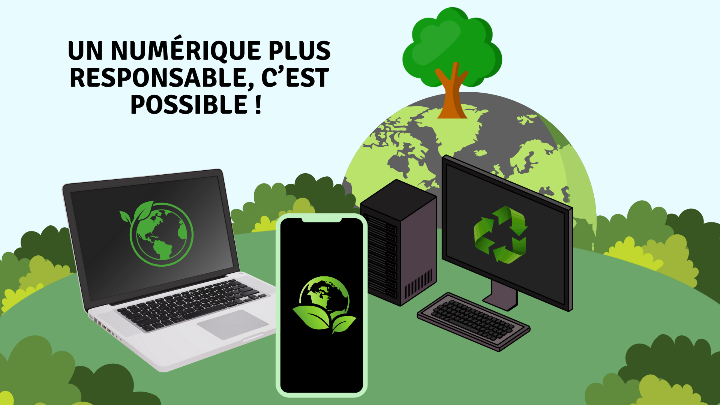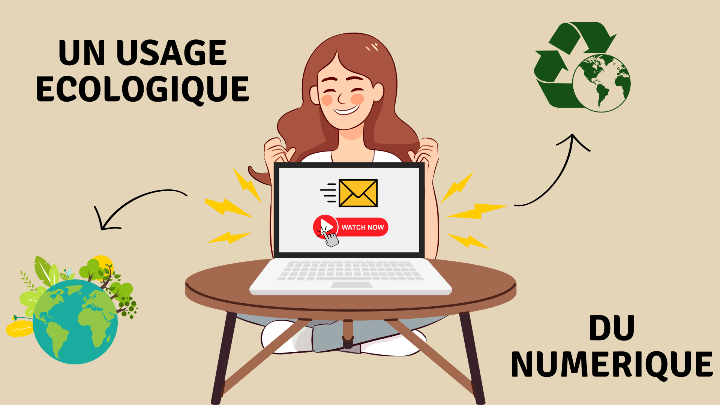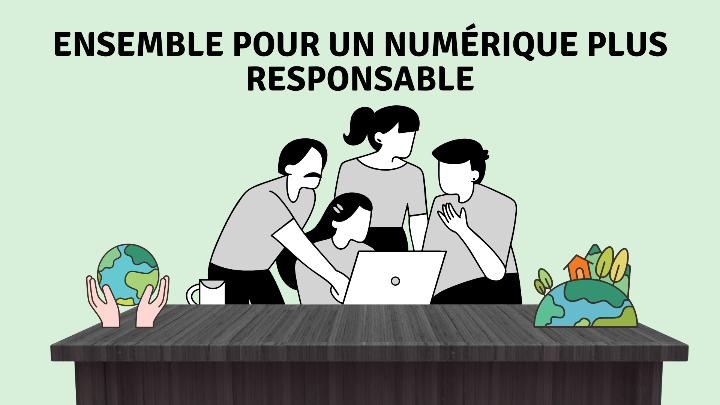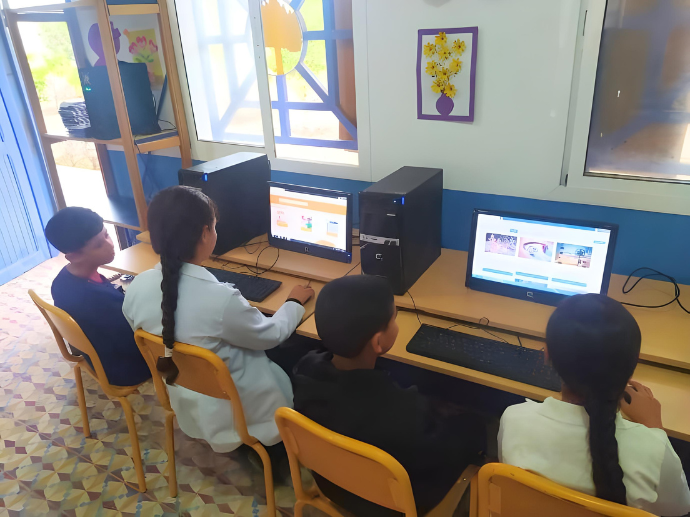Nowadays, digital technology is part of our everyday lives, whether we're working, communicating, or storing information. But behind every email sent, every file saved, and every online meeting held, there’s an often-invisible cost in energy and resource consumption.
Adopting more responsible digital habits helps reduce our impact while making the most of our tools. In this article, we’ll explore how to better manage our devices, data, and digital routines to promote a more sustainable approach to technology.
❓ Digital pollution is more significant than we think: it accounts for around4% of global greenhouse gas emissionsand this footprint is only growing.
💡 DataCup Initiative: For several months now, we’ve committed to aresponsible digital approachand taken concrete steps to reduce our footprint by optimizing how we use digital tools and raising awareness among our teams.

Why Embrace Responsible Digital Practices
Digital tools are everywhere, from sending messages to streaming videos to storing files. What we often forget is that all of this consumes electricity and natural resources. Over time, that usage can have serious environmental consequences.
Thankfully, small changes can make a big difference. Choosing energy-efficient devices can cut down on power consumption. Regularly cleaning up files, emails, and apps helps ease the load on servers, which run continuously and require a lot of energy.
Another way to act responsibly is by taking care of your devices.Proper maintenanceand extending their lifespan means fewer replacements: leading to less production, less pollution, and fewer electronic waste issues.
Being more mindful about your digital habits is good for the planet and your wallet. Using less energy and buying fewer devices translates into real savings, all while contributing to a more sustainable world.
❓ A single email with a 1MB attachment emits around 19g of CO₂.Multiply that by thousands, and the impact becomes massive !
💡 DataCup Initiative: We've implemented an email-cleaning policy by removing unnecessary messages, limiting attachments, and encouraging the use of collaborative tools to avoid multiple forwards. All employees now have limited email storage, encouraging them to regularly clear out old messages and unsubscribe from irrelevant newsletters.

Simple Everyday Habits to Make a Difference
Here are a few easy steps to help make your digital usage more responsible day to day :
Choose Energy-Efficient Devices
Start by selecting energy-efficient devices, look for the Energy Star label, for example. These consume less electricity and are better for the environment. Don’t forget to turn off your devices when not in use instead of leaving them on standby. And when a device starts aging, try repairing or recycling it before replacing it.
Improve Your Data Management
Good data hygiene is essential. Regularly delete unused files and avoid duplicates. For long-term storage, consider eco-friendly cloud solutions that consume less energy. If you digitize your documents (especially administrative ones), keep your storage organized and turn off auto-sync on multiple devices to prevent unnecessary storage.
Reduce the Impact of Emails
When sending emails, avoid large attachments that require significant bandwidth: every email and its attachments travel through multiple data centers worldwide. Only copy those who really need to be in the loop to keep things lean and efficient.
Make Virtual Meetings More Sustainable
Remote meetings are great for avoiding travel (by train, plane, etc.), but they do have a digital carbon cost. If possible, use audio instead of video to reduce bandwidth. Keep virtual meetings small and focused, and limit email overload by only sharing essential information. Don’t hesitate to delete what no longer needs to be kept.
❓ Producing a single computer emits around350 kg of CO₂ and requires 240 kg of fossil fuels, 22 kg of chemicals, and 1,500 liters of water.
💡 DataCup Initiative: We've been buying mostly refurbished IT equipment for years. Since the introduction of the repairability index, it’s become a key part of our purchasing policy. We also prioritize Energy Star-certified devices. On top of that, we encourage our teams to maintain and repair equipment before considering replacement. When repair isn't possible, we recycle through solutionslike Tri'box.

Toward a More Sustainable Approach
Taking responsible steps also means going beyond daily habits to consider more strategic actions.
One of the first things to do is raise awareness among your teams about the importance of responsible digital practices. The more people understand the impact of their actions, the more they can help reduce energy consumption and electronic waste.
It’s also important to monitor the energy consumption of your devices and digital tools regularly. This helps spot areas for improvement and ensures you're meeting your sustainability goals.
Lastly, having a responsible purchasing policy is essential. Choosing durable, repairable, and energy-efficient equipment helps lower your organization's long-term environmental footprint.
❓ Storing 1 TB of data on a server for a year emits about 240g of CO₂,roughly the same as driving 1 km in a gas-powered car.
💡 DataCup Initiative: We've developed an archiving system that automatically deletes unnecessary files after a certain period. We also educate our teams to keep only what’s truly essential.

En adoptant de petites habitudes au quotidien, il est possible de rendre notre utilisation du numérique plus responsable. Que ce soit en optimisant nos équipements, en gérant mieux nos données ou en réduisant l’impact de nos communications, chaque geste compte. Ces bonnes pratiques permettent non seulement de préserver l’environnement, mais aussi de faire des économies et de prolonger la durée de vie de nos équipements. C’est un petit effort pour un grand changement, et chacun de nous peut faire la différence.
❓ Only 27% of people in France are aware of the environmental impact of digital technology, which slows down the adoption of more sustainable habits.
💡 DataCup Initiative: We've launched awareness sessions to help our teams adopt more eco-friendly reflexes in their daily work.
 Duddal
Duddal SOS Village d'Enfants Niger
SOS Village d'Enfants Niger



Digital Sobriety and Tackling Digital Overconsumption